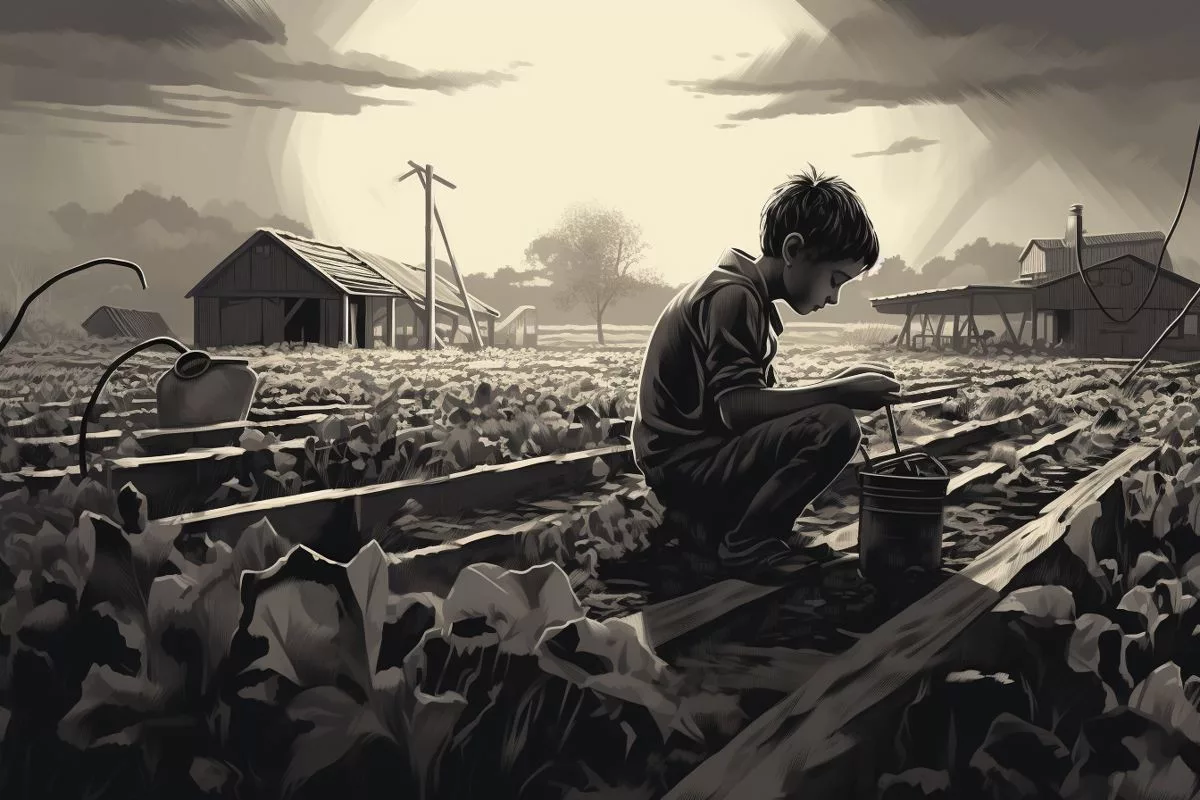The Child Labour project in South Africa is a joint initiative between the South African Department of Employment and Labour, the International Labour Organization, and the European Union. It aims to prevent and eradicate child labour in the agricultural sector in KwaZulu-Natal and Western Cape provinces through prevention, protection, and rehabilitation measures. The project launch on November 17, 2023, in Johannesburg marks a significant milestone in the fight against child labour and emphasizes the importance of collaborative efforts in addressing societal challenges.
What is the Child Labour project in South Africa?
The Child Labour project is a joint initiative between the South African Department of Employment and Labour, the International Labour Organization, and the European Union to prevent and eradicate child labour in the agricultural sector. The project will be tested in KwaZulu-Natal and Western Cape provinces and will focus on prevention, protection, and rehabilitation measures. The project will launch on November 17, 2023, in Johannesburg.
A Joint Initiative targeting Child Labour
Child labour in South Africa has caused significant concern for an extended period. It has prompted the South African Department of Employment and Labour to initiate an important project to combat this issue, backed by the International Labour Organization (ILO). The European Union has generously funded this project, which focuses on fortifying the measures to prevent and eradicate child labour within South Africa’s agricultural sector.
The issue of child labour is not a recent concern for South Africa. Numerous children in various sectors are the victims of this terrible situation. The South African Government has grasped the urgency of this escalating crisis. Collaborating with civil society organizations, international agencies, and local communities, they are intensifying efforts to counter this menace.
The government’s strategic plan is comprehensive, incorporating prevention, protection, and rehabilitation measures. The 5th Global Conference on the Elimination of Child Labour held in Durban, concluded with the “Durban Call to Action”, which emphasized the urgency of necessary actions to terminate child labour. This call to action has provided a significant boost to the government’s efforts to annihilate the widespread child labour.
Addressing Child Labour in the Agricultural Sector
Child labour within the agricultural sector has been increasingly prevalent. The European Union, acting upon commitments made through the Durban Call to Action, has given approval to confront this issue within the agricultural sector. Thus, the Child Labour project was born.
The project will first be tested in two provinces – KwaZulu-Natal and Western Cape. KwaZulu Natal Province, according to the 2019 last Survey on the Activities of Child Labour, has the highest child labour incidents in the country. In contrast, Western Cape has the highest number of children not attending school.
The main goal of this project shares the aspirations of the Durban Call to Action. It focuses on intensifying the prevention and eradication of child labour within South Africa’s agricultural sector.
Launching the Project
The Child Labour project is set to launch on 17 November 2023, at the Protea Hotel by Marriott Balalaika in Sandton, Johannesburg. The event will take place from 10h00 to 12h00. Media persons are encouraged to attend and provide coverage for this significant event.
In the fight against child labour, the Department of Employment and Labour has achieved substantial progress. The launching of this new project brings hope for a significant stride towards preventing and eradicating child labour within South Africa’s agricultural sector. The collaborative efforts of diverse organizations and the government reflect a commitment to making a positive impact on the lives of thousands of children affected by child labour.
The project’s launch marks a significant milestone in the battle against child labour. It symbolizes a combined effort of various bodies and organizations to tackle a significant and urgent issue. The strategy involves a combination of prevention, protection, and rehabilitation efforts, showing promise in confronting the problem. It demonstrates that with shared commitment and cooperative efforts, substantial change can be achieved.
The project highlights the importance of collaborative efforts in addressing societal challenges. It serves as a reminder that when diverse bodies unite for a common objective, significant change can be accomplished. The Child Labour project’s launch is not only a step towards eradicating child labour but also demonstrates the power of shared responsibility and collective action. It is through initiatives like these that societal changes occur and the lives of those affected by such issues improve.
1. What is the Child Labour project in South Africa?
The Child Labour project is a joint initiative between the South African Department of Employment and Labour, the International Labour Organization, and the European Union to prevent and eradicate child labour in the agricultural sector. The project will be tested in KwaZulu-Natal and Western Cape provinces and will focus on prevention, protection, and rehabilitation measures. The project will launch on November 17, 2023, in Johannesburg.
2. What is the South African government doing to combat child labour?
The South African government is collaborating with civil society organizations, international agencies, and local communities to intensify efforts to counter child labour. The government’s strategic plan includes prevention, protection, and rehabilitation measures, and has been given a boost by the “Durban Call to Action” from the 5th Global Conference on the Elimination of Child Labour.
3. Why is the focus on child labour in the agricultural sector?
Child labour within the agricultural sector has been increasingly prevalent, and the European Union has given approval to confront this issue within the sector. The Child Labour project will test prevention, protection, and rehabilitation measures in two provinces with high rates of child labour incidents.
4. When will the Child Labour project launch?
The Child Labour project will launch on November 17, 2023, at the Protea Hotel by Marriott Balalaika in Sandton, Johannesburg.
5. What is the significance of the Child Labour project launch?
The project’s launch marks a significant milestone in the fight against child labour, emphasizing the importance of collaborative efforts in addressing societal challenges. It symbolizes a combined effort of various bodies and organizations to tackle a significant and urgent issue, demonstrating the power of shared responsibility and collective action.
6. Who is encouraged to attend the project launch?
Media persons are encouraged to attend and provide coverage for the project launch.








